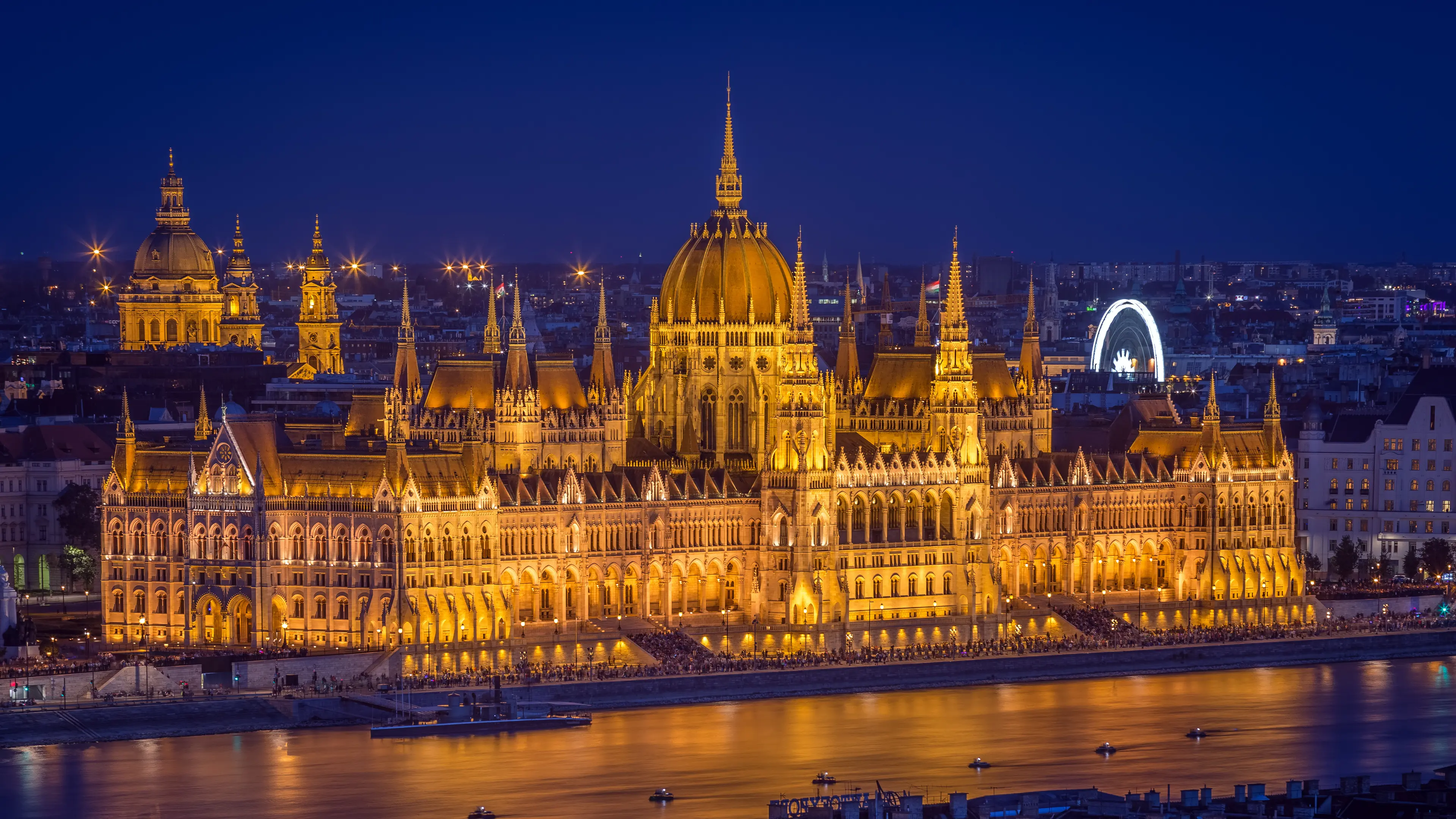1-Day Local Family Experience in Budapest: Outdoors & Shopping
Budapest, Hungary
1 days
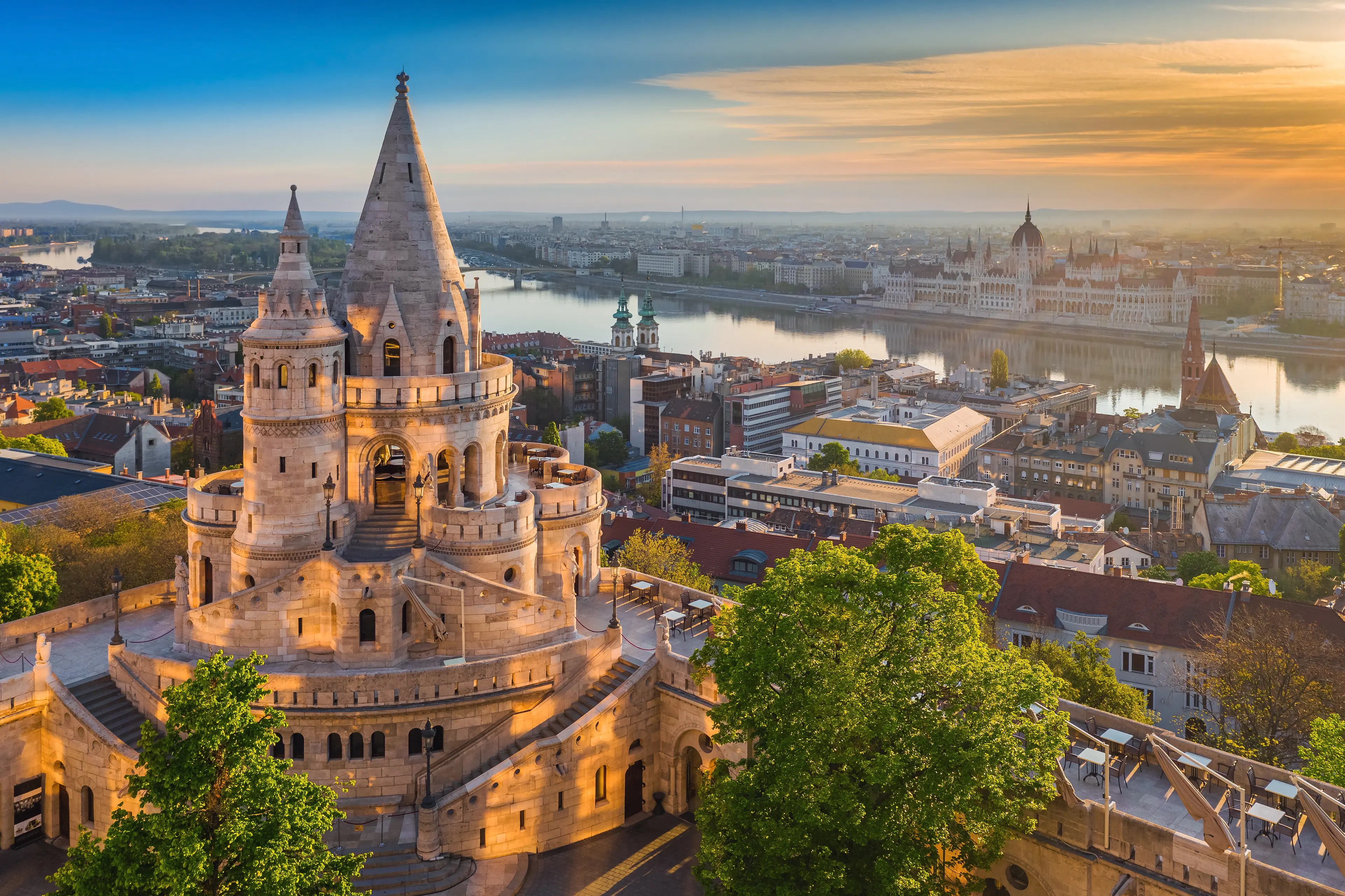
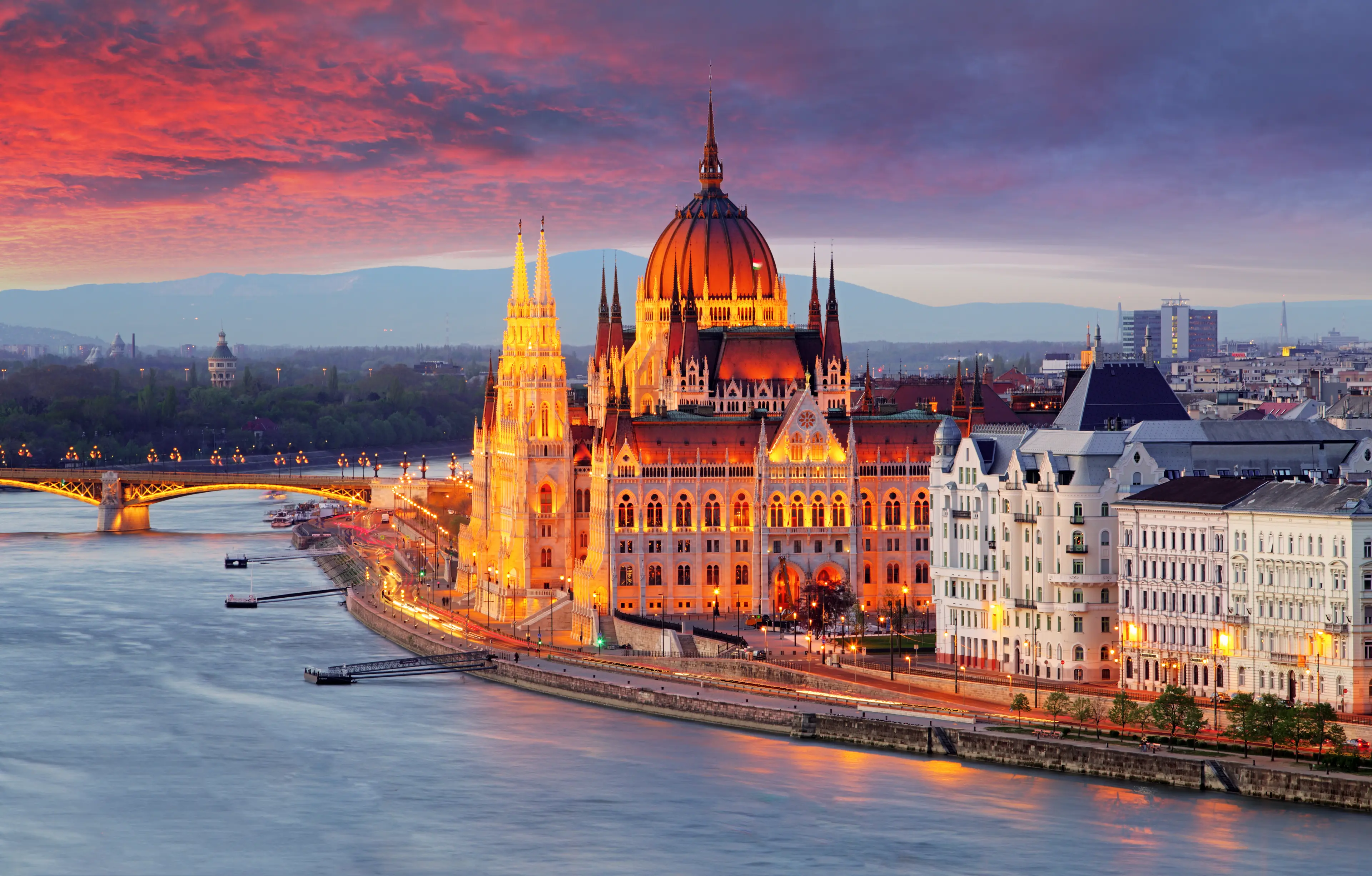
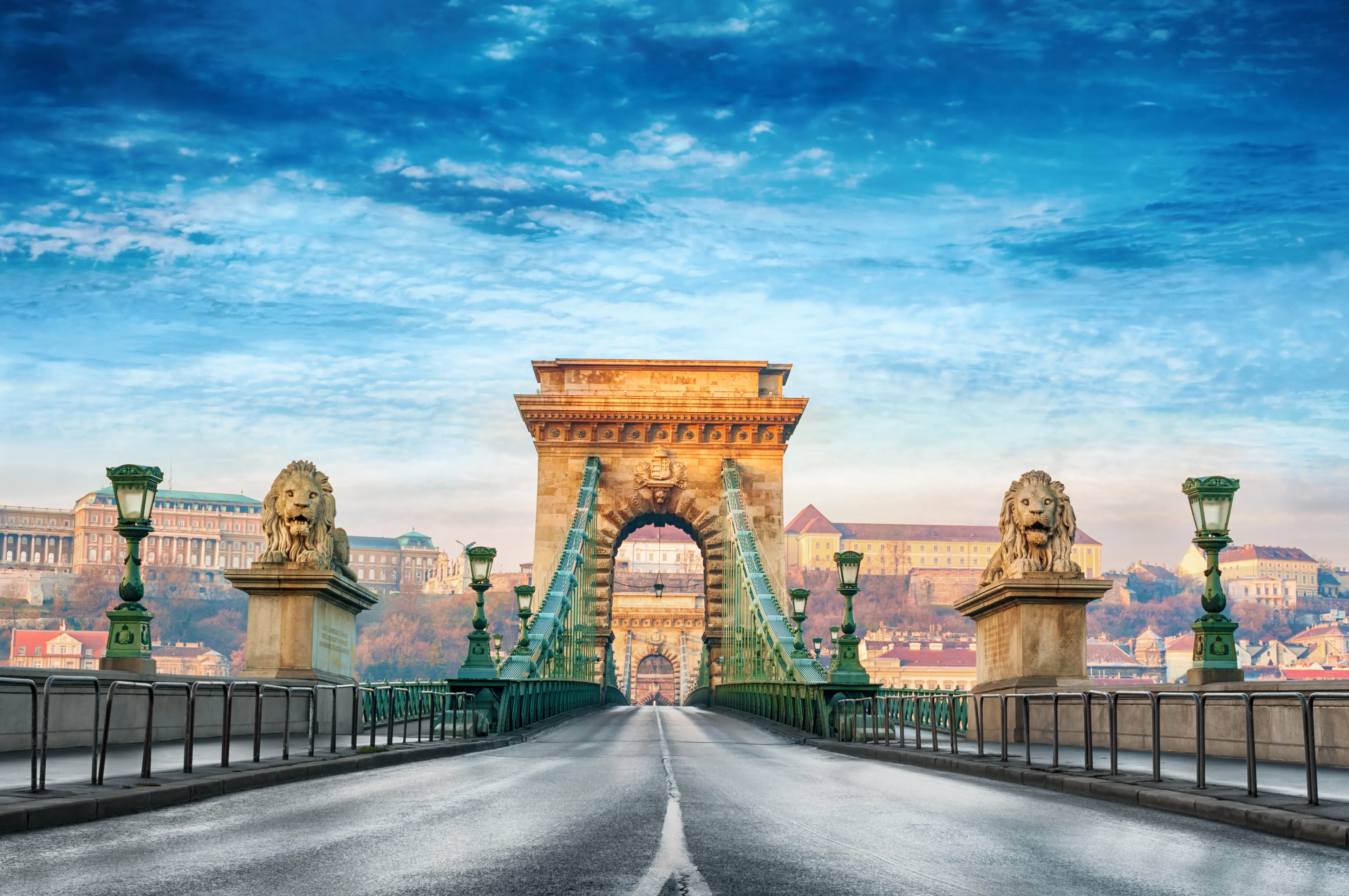
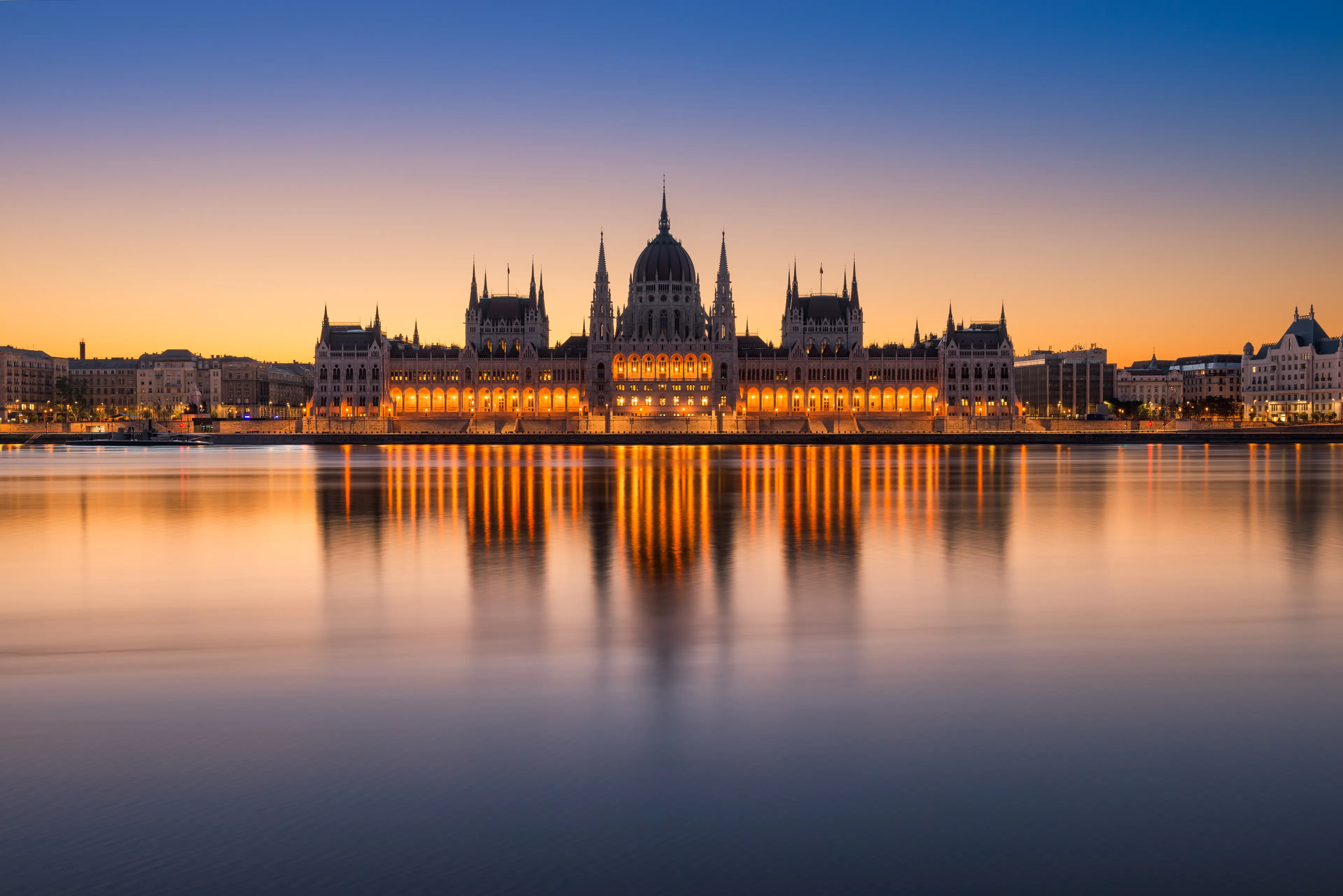
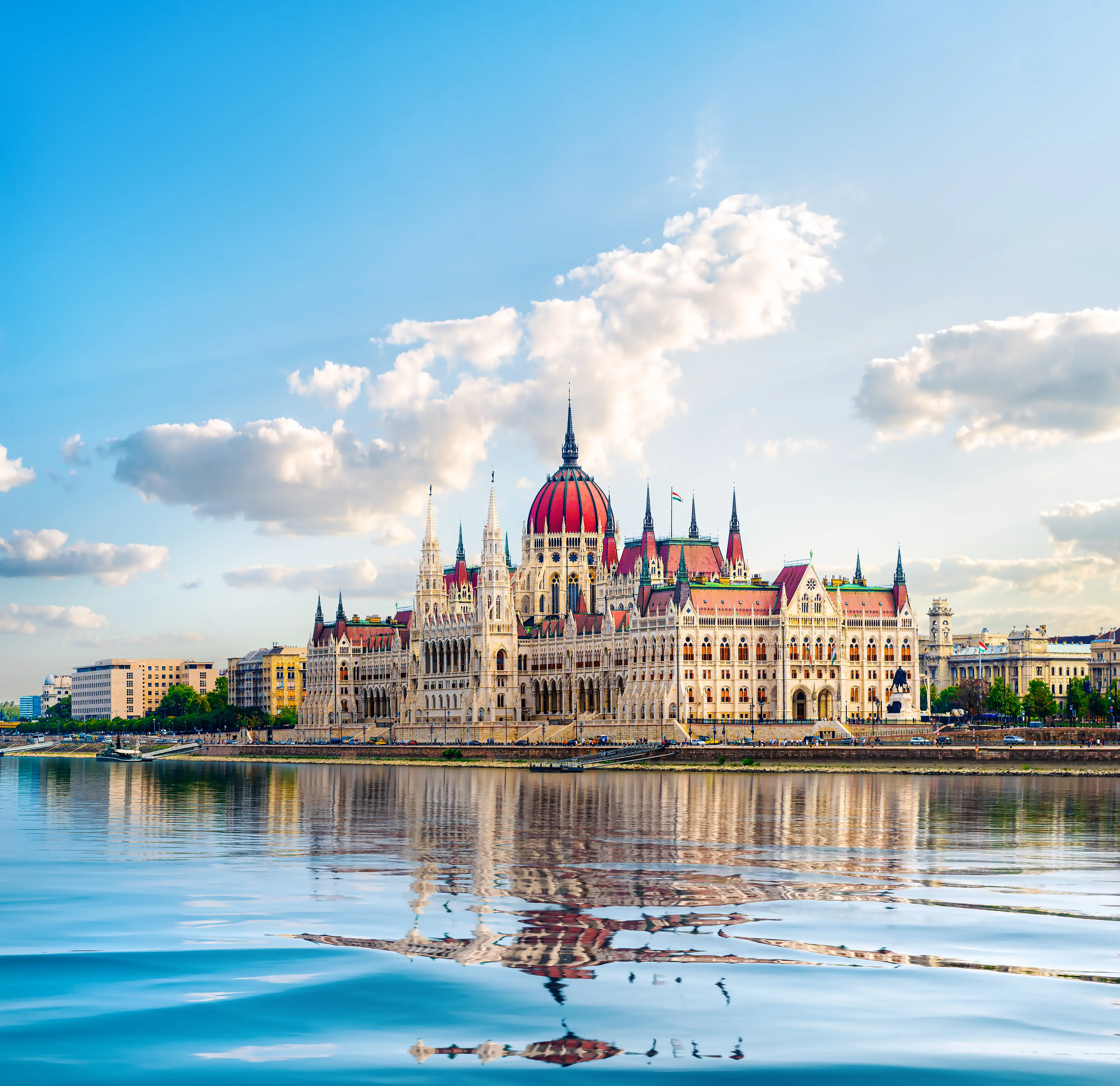
About Budapest, Hungary
Budapest, the enchanting capital of Hungary, is a fusion of history, culture, and natural beauty. Divided by the serene Danube River, it boasts two distinct sides: Buda, the historic district, and Pest, the bustling business hub. Explore the UNESCO World Heritage site, Buda Castle, for a panoramic view of the city, or soak in the world-famous thermal baths for a unique relaxation experience. Discover the city's rich history at the Holocaust Memorial Center and House of Terror. Savor traditional Hungarian cuisine, especially the iconic goulash, in the city's numerous eateries. Budapest's vibrant nightlife, with its ruin pubs and wine bars, is not to be missed. With its stunning architecture, fascinating museums, and welcoming locals, Budapest offers an unforgettable travel experience.
1-Day Itinerary
Attractions in Itinerary (5)
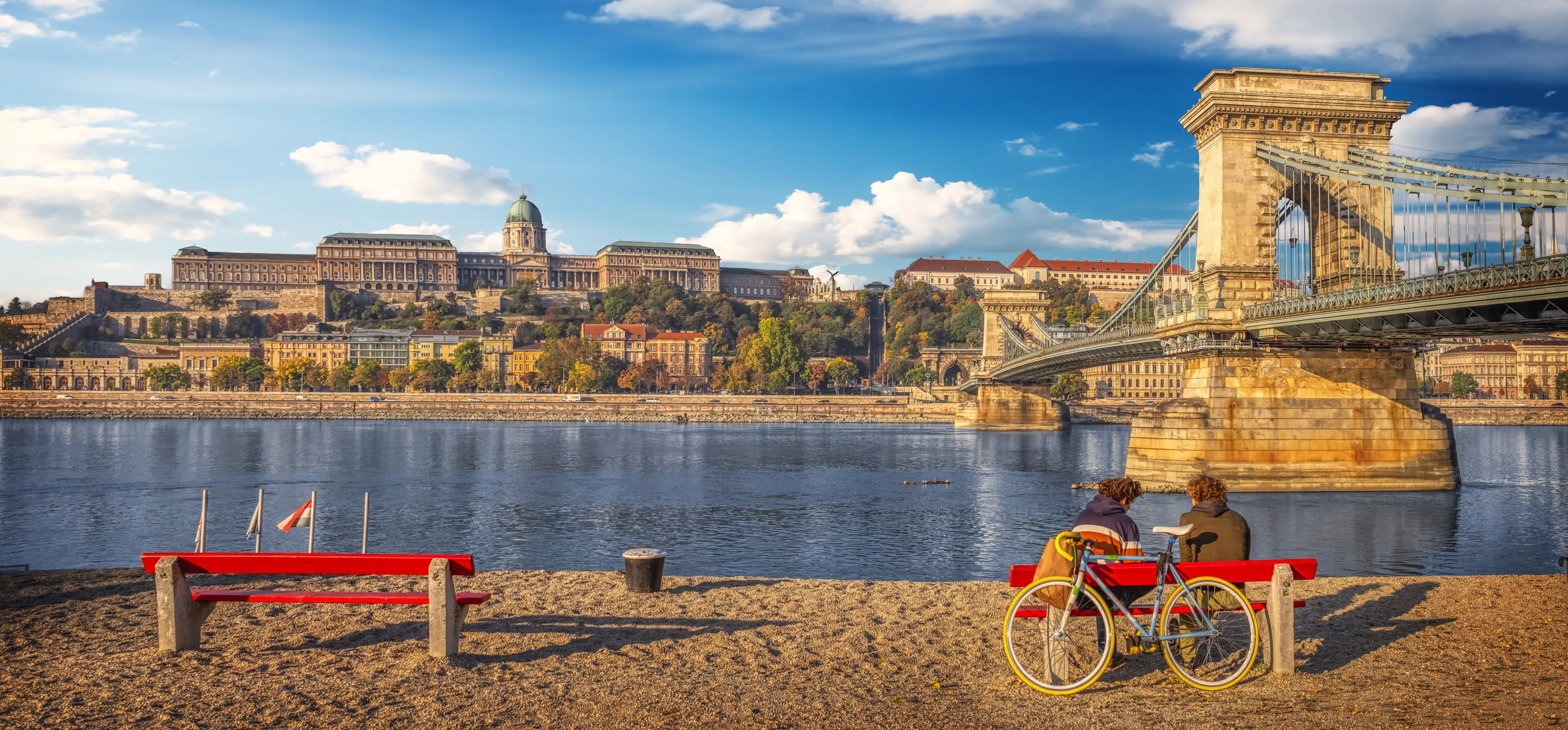
1Danube River
The Danube River flows through the heart of Budapest, offering scenic boat tours and views of the city's landmarks.

2Buda Castle
A historical castle and palace complex of the Hungarian kings, Buda Castle is a UNESCO World Heritage site that offers stunning views of the city.

3Matthias Church
A Roman Catholic church located in the heart of Buda's Castle District, Matthias Church is one of the finest examples of Gothic architecture in Budapest.

4Fisherman's Bastion
Located in the Buda Castle district, the Fisherman's Bastion is a neo-Gothic and neo-Romanesque style terrace that offers panoramic views of the city.
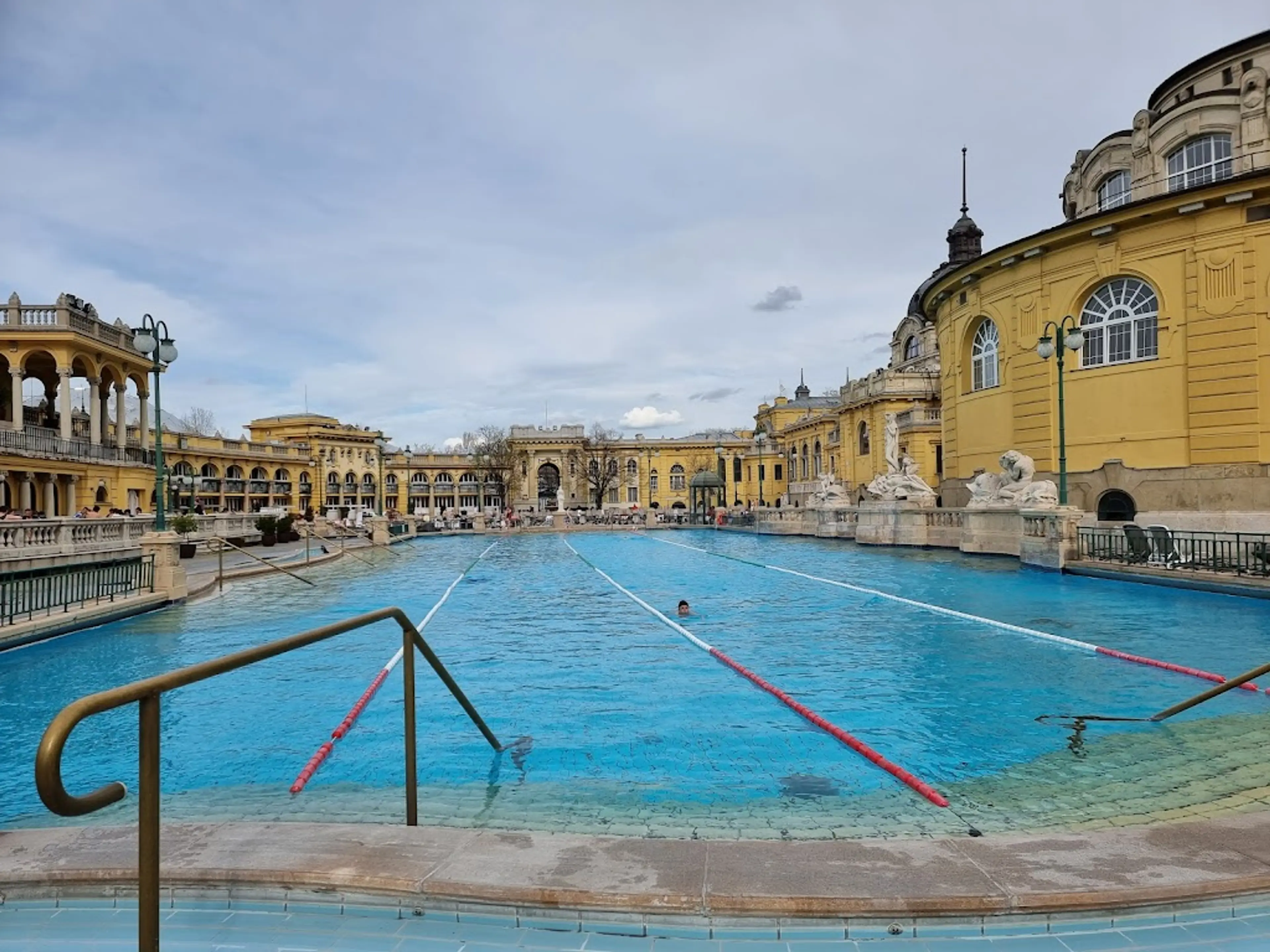
5Thermal Bathhouses
Budapest is famous for its thermal baths, offering a unique relaxation and wellness experience. The city is rich in thermal water with healing qualities, thanks to its location on a geological fault line.
Local Food and Drinks (12)

Gulyás
A hearty soup made from beef, vegetables, and a lot of paprika. It's one of the most traditional dishes in Hungary and a must-try when in Budapest.

Lángos
A deep-fried flatbread topped with sour cream and grated cheese. It's a popular street food in Budapest.

Pörkölt
A thick stew made from meat, onions, and paprika. It's a staple dish in Hungarian cuisine and commonly eaten in Budapest.

Töltött Káposzta
Cabbage leaves stuffed with meat and rice, then slow-cooked in a tangy sauce. It's a traditional Hungarian dish often enjoyed during winter in Budapest.

Kürtőskalács
Also known as chimney cake, it's a sweet spiral-shaped pastry that is baked over an open fire. It's a popular dessert in Budapest.

Palacsinta
Hungarian pancakes filled with jam, sweet cottage cheese, or chocolate. They are a common dessert in Budapest.

Halászlé
A spicy fish soup made from river fish and a lot of paprika. It's a traditional dish often eaten during Christmas in Budapest.

Somlói Galuska
A trifle made from sponge cake, chocolate cream, whipped cream, and rum. It's a beloved dessert in Budapest.

Csirke Paprikás
Chicken in a creamy paprika sauce, often served with dumplings. It's a classic Hungarian dish that is popular in Budapest.

Tokaji Aszú
A sweet dessert wine from the Tokaj region. It's one of the most famous Hungarian wines and a must-try when in Budapest.

Unicum
A herbal liqueur made from more than 40 different herbs and spices. It's a traditional Hungarian drink often enjoyed as a digestif in Budapest.

Pálinka
A traditional fruit brandy that is very popular in Budapest. It's often enjoyed as a shot.
Best time to visit
The best time to visit Budapest, Hungary is during the spring (March to May) and the fall (September to November). During these periods, the weather is generally pleasant and the city is less crowded with tourists. The summer months can also be a good time if you don't mind the heat and a higher number of tourists. Budapest is known for its summer festivals, which can offer a unique cultural experience. However, if you enjoy winter sports or the festive atmosphere of Christmas markets, the winter months could also be an attractive option.
How to get around
Public Transportation
Budapest has an extensive and efficient public transportation system. It includes the Budapest Metro, trams, buses, trolleybuses, and suburban railway lines. Tickets can be purchased at metro stations, newsstands, and ticket machines. Remember to validate your ticket before boarding.
Taxi
Taxis are widely available in Budapest. They are yellow and display a taxi sign on the roof. All taxis operate at the same rate, which is regulated by the city government. You can hail a taxi on the street, call a taxi company, or use a taxi app.
Ridesharing
Ridesharing services like Bolt are available in Budapest. You can book a ride using the app on your smartphone. It's a convenient way to get around, especially if you're unfamiliar with the city or don't speak the language.
Bicycle
Budapest is a bike-friendly city with numerous bike lanes and bike-sharing system called Bubi. You can rent a bike from one of the many Bubi stations around the city. It's a great way to explore the city at your own pace.
Boat
Boats and ferries operate on the Danube River, offering a unique way to see the city. Some services are part of the public transportation system, while others are private tour operators. It's a scenic and relaxing way to travel, especially in the warmer months.
Foot
Many of Budapest's attractions are within walking distance of each other, especially in the city center. Walking is a great way to explore the city, take in the sights, and discover hidden gems. Don't forget to wear comfortable shoes!
Car Rental
Renting a car is an option, but it's not recommended for visitors due to the heavy traffic and difficulty finding parking in the city center. However, it could be useful if you plan to explore the countryside or other parts of Hungary.
Airport Transfer
There are several options for getting to and from Budapest Airport. These include taxis, airport shuttle services, and public transportation. The airport is about 16 km from the city center.
Important information
CurrencyFt HUF
Time zoneUTC+1
Driving sideRight
Emergency phone112
Drinking waterYes, in the major cities
Power sockets
Voltage230 V
Things to know about Budapest, Hungary as a first time visitor
1
Hungary's official currency is the Hungarian Forint (HUF), not the Euro. However, many places also accept Euros.
2
Budapest is divided into two parts: Buda and Pest, separated by the Danube River.
3
Hungarian is the official language, but English is widely spoken in tourist areas and by younger generations.
4
Budapest is generally safe for tourists, but like any major city, it's important to be aware of your surroundings and keep an eye on your belongings.
5
Public transportation is reliable and extensive. Consider getting a Budapest Card for unlimited travel and other discounts.
6
Tipping is customary in Hungary. It's typical to tip 10-15% at restaurants, cafes, and taxis.
7
Hungary is part of the Schengen Agreement, so EU citizens can enter with an ID card. Non-EU citizens generally need a passport.
8
The tap water in Budapest is safe to drink.
9
Smoking is banned in public places, including bars and restaurants.
10
Budapest has a continental climate. Summers (June-August) can be hot, with temperatures ranging from 70-85°F (21-29°C). Winters (December-February) can be cold, with temperatures from 28-37°F (-2-3°C).
11
Credit cards are widely accepted, but it's a good idea to carry some cash, especially for smaller establishments.
12
Budapest is in the Central European Time Zone (CET), which is 1 hour ahead of Greenwich Mean Time (GMT+1).
13
Pharmacies are widely available for any medical needs. Look for the green cross sign.
14
Hungary has a 27% Value Added Tax (VAT) which is included in most prices. Non-EU tourists can claim a VAT refund on certain goods.
15
Public restrooms may charge a small fee, so it's a good idea to keep some coins on hand.
16
Hungary has a 112 emergency number for police, fire, and medical services.
17
Budapest is a city of thermal baths. Don't forget to pack a swimsuit.
18
Hungarians are known for their hospitality, but they also appreciate politeness. Learn a few basic Hungarian phrases.
19
Hungary uses type F power sockets. The standard voltage is 230 V, and the standard frequency is 50 Hz.
20
Budapest has a vibrant nightlife. However, it's important to respect local residents and keep noise to a minimum, especially in residential areas.
Basic Hungarian to know as a first time visitor
English phrase | Native phrase | Pronunciation | When to use it |
|---|---|---|---|
Hello | Szia | See-ya | Greeting someone |
Goodbye | Viszlát | Vee-slaht | Leaving or saying goodbye to someone |
Please | Kérem | Kay-rem | When asking for something |
Thank you | Köszönöm | Ko-suh-noom | After receiving something or someone's help |
Yes | Igen | Ee-gen | Agreeing with someone |
No | Nem | Nem | Disagreeing with someone |
Excuse me | Elnézést | El-nay-zayst | Getting someone's attention or apologizing |
I don't understand | Nem értem | Nem air-tem | When you don't understand what was said |
Do you speak English? | Beszélsz angolul? | Bes-zayls angolul | When you need to speak in English |
I'm sorry | Sajnálom | Sigh-na-lom | Apologizing |
Where is the bathroom? | Hol van a WC? | Hol van a vay-tsay | When you need to use the bathroom |
How much does it cost? | Mennyibe kerül? | Men-yee-be ker-ool | When you want to know the price of something |
I would like... | Szeretnék... | Ser-et-nayk | When ordering or asking for something |
Help | Segítség | She-geet-sayg | When you need assistance |
Good morning | Jó reggelt | Yo reg-gelt | Greeting someone in the morning |
Good afternoon | Jó napot | Yo na-pot | Greeting someone in the afternoon |
Good evening | Jó estét | Yo esh-tayt | Greeting someone in the evening |
Good night | Jó éjszakát | Yo ay-sa-kat | Saying goodbye in the evening or before bed |
Cheers | Egészségedre | Eh-gey-she-ge-dre | When toasting drinks |
Water | Víz | Veez | When you want to order water |
Packing List
Clothing
Comfortable walking shoes
Lightweight clothing
Jacket or sweater for cooler evenings
Rain jacket or umbrella
Sunglasses
Hat for sun protection
Toiletries
Travel-size shampoo and conditioner
Travel-size body wash or soap
Toothbrush and toothpaste
Deodorant
Razor and shaving cream
Sunscreen
Hand sanitizer
Travel-size first aid kit
Travel documents and essentials
Passport
Driver's license or other form of ID
Credit and debit cards
Cash in local currency (Hungarian Forint)
Travel insurance documents
Hotel and transportation reservation confirmations
Emergency contacts and addresses
Electronics and gadgets
Smartphone
Charger for smartphone
Power adapter (Hungary uses Type F plug)
Portable power bank
Digital camera or GoPro
Headphones
Miscellaneous items
Travel guidebook for Budapest
Map of Budapest
Reusable water bottle
Snacks
Travel pillow and blanket for the journey
Pen and small notebook
Weather Conditions
Budapest, the capital of Hungary, experiences a continental climate, which means it has hot summers and cold winters. If you're planning to visit in the summer, from June to August, expect average temperatures to range from 70°F to 80°F (21°C to 27°C). It's the perfect time for outdoor activities like visiting the Buda Castle or strolling along the Danube River. However, summer is also the peak tourist season, so expect larger crowds and higher prices. Don't forget to pack light clothing, sunscreen, and a hat to protect yourself from the sun. Spring (March to May) and autumn (September to November) are also great times to visit. The weather is milder, with temperatures ranging from 45°F to 70°F (7°C to 21°C), and the city is less crowded. You might want to bring a light jacket or sweater for the cooler evenings. Winter in Budapest, from December to February, can be quite cold, with temperatures often dropping to 20°F to 30°F (-6°C to -1°C). It's a magical time to visit, especially during the Christmas season when the city is beautifully decorated and Christmas markets are in full swing. Make sure to pack warm clothing, including a heavy coat, scarves, gloves, and hats. Regardless of when you visit, keep in mind that Budapest's weather can be unpredictable, so it's always a good idea to check the forecast before your trip and pack accordingly. Also, don't forget to pack an umbrella or raincoat, as rain can occur in any season. Enjoy your trip to Budapest!
| Month | Hi / Lo (°C) | Weather Overview |
|---|---|---|
January | 4° / -2° | January is the coldest month in Budapest, with temperatures often dropping below freezing. It's a great time to visit if you enjoy winter sports or want to experience the city's thermal baths. |
February | 6° / -1° | February is still quite cold, but the city begins to thaw out. It's a quieter time to visit, perfect for exploring indoor attractions like museums and galleries. |
March | 12° / 2° | March sees the start of spring, with temperatures slowly rising. It's a good time to visit for outdoor activities, as the city's parks and gardens start to bloom. |
April | 18° / 6° | April is a pleasant month with moderate temperatures. It's a great time to explore the city on foot, with many outdoor festivals and events taking place. |
May | 23° / 11° | May is one of the best months to visit Budapest, with warm temperatures and plenty of sunshine. It's perfect for sightseeing, picnicking in the parks, and enjoying the city's outdoor cafes. |
June | 26° / 14° | June is the start of the summer season, with long, sunny days. It's a great time to visit for outdoor activities, such as swimming in the city's thermal baths or cruising on the Danube River. |
July | 28° / 16° | July is the hottest month in Budapest, with temperatures often exceeding 30 degrees Celsius. It's a great time to visit for sunbathing, swimming, and enjoying the city's vibrant nightlife. |
August | 28° / 16° | August is another hot month, perfect for enjoying the city's outdoor attractions. It's also when the famous Sziget Festival takes place, attracting music lovers from around the world. |
September | 24° / 12° | September marks the start of autumn, with temperatures starting to cool down. It's a great time to visit for sightseeing, as the city's parks and gardens are beautifully colored. |
October | 17° / 7° | October is a cooler month, with temperatures dropping and the leaves changing color. It's a great time to visit for those who enjoy autumn scenery and fewer crowds. |
November | 11° / 3° | November is a chilly month, with temperatures dropping further. It's a quieter time to visit, perfect for exploring the city's indoor attractions and Christmas markets. |
December | 6° / 0° | December is a festive month in Budapest, with Christmas markets and lights illuminating the city. It's a magical time to visit, despite the cold temperatures. |
Did you know?
Places near by Budapest, Hungary

Esztergom Basilica
The largest church in Hungary, offering panoramic views of the Danube River.

Visegrád Castle
A historical fortress with panoramic views of the Danube Bend.

Szentendre
A charming town known for its well-preserved Baroque architecture, art galleries, and museums.

Veszprém
A city with a rich history, home to the Veszprém Zoo and the Veszprém Castle.

Lake Balaton
The largest lake in Central Europe, popular for swimming, sailing, and fishing.

Gödöllő Palace
A beautiful Baroque palace, once the favorite summer residence of Empress Elisabeth of Austria.

Eger
A city known for its castle, thermal baths, and the best Hungarian red wines.

Holloko
A UNESCO World Heritage Site, this village is a living example of rural life before the agricultural revolution of the 20th century.

Pécs
A city rich in Roman and Turkish architecture, and home to the UNESCO-listed Early Christian Necropolis.

Aggtelek National Park
Home to the largest stalactite cave in Europe, the Baradla Cave.
